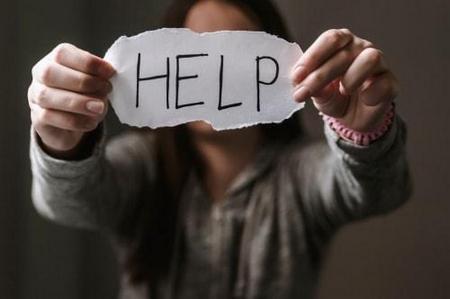How Does the Violence Against Women Act Affect Immigration?
 The Violence Against Women Act (VAWA) is a United States federal law that provided funds toward the investigation and prosecution of violent crimes against women, imposed automatic and mandatory restitution on those convicted, and allowed civil redress in unprosecuted cases. In addition, the Act formed the Office on Violence Against Women within the Department of Justice. Unfortunately, many undocumented immigrant women are vulnerable to abuse and exploitation. These crimes can take place in their home countries or when they try to enter the United States. However, there are forms of relief available.
The Violence Against Women Act (VAWA) is a United States federal law that provided funds toward the investigation and prosecution of violent crimes against women, imposed automatic and mandatory restitution on those convicted, and allowed civil redress in unprosecuted cases. In addition, the Act formed the Office on Violence Against Women within the Department of Justice. Unfortunately, many undocumented immigrant women are vulnerable to abuse and exploitation. These crimes can take place in their home countries or when they try to enter the United States. However, there are forms of relief available.
Immigrants Who Are Victims of Abuse
Immigrant women can be the victims of domestic violence when they enter the country, while working, and even within their own homes. Female immigrants who are victims of abuse often fail to report such crimes for fear of deportation. Fortunately, federal immigration law provides relief in several forms of protection for immigrant women.
U visas are available for victims of certain crimes, while victims of domestic violence may petition for relief under the Violence Against Women Act (VAWA). U visas and VAWA petitions can be complicated, and it is important to understand the qualifications for them.
Who Qualifies for Relief Under VAWA?
Victims of domestic violence can be abused spouses, children, and parents, and they may petition for immigration relief under VAWA. To qualify for help, a person must show good moral character and have a U.S. Citizen or Legal Permanent Resident (LPR) relative who has committed the abuse. For a battered spouse, the victim must have entered into the marriage in good faith and lived with his or her spouse for a period of time. If the petitioner is divorced, he or she must show that the divorce was a result of the abuse suffered. If an individual is living with a boyfriend or girlfriend but are not married and/or the abuser is not a U.S. Citizen or LPR, the immigrant cannot seek VAWA relief.
According to VAWA, immigrants who are victims of domestic abuse (including child abuse and elder abuse) may “self-petition” for LPR status. They do not need the assistance of an abusive family member. This allows the victim to file the self-petition and obtain LPR status without separating from the abuser, thus permitting the victim to flee the abuser once he or she has obtained LPR status.
The following individuals are eligible for VAWA self-petitions:
- Current and former spouses of abusive U.S. citizens or LPRs
- Divorced spouses if the abuse caused the breakup of the marriage and if the application is filed up to two years after the marriage ended
- Children of abusive citizens or LPRs who file before they turn 25 years old
- An immigrant parent of a battered immigrant child
- Non-U.S. citizen spouses with children who are abused by the children’s other parent who is a U.S. citizen or LPR
An immigrant who is petitioning for relief must provide evidence of abuse in addition to meeting the below conditions:
- Valid marriage if the abuser is a spouse or stepparent
- Relationship to the abuser
- Immigration status of the citizen or LPR spouse, parent, or child
- Good moral character
- Lived or living with the abusive family member
- Parent-child relationship if the petitioner is an immigrant parent whose spouse (U.S. citizen or LPR) committed the abuse
Contact an Illinois Immigration Attorney
Domestic violence can happen to people of all ages and nationalities throughout the world, even those who are hoping to enter the United States from another country. At Mevorah & Giglio Law Offices, we understand how some immigrants might be hesitant to report abuse in fear of jeopardizing their immigration status. If you or a loved one is a victim of domestic violence with hopes of becoming a United States citizen, our skilled Illinois immigration attorneys can assist you in securing a safe future here. Call our office today at 630-932-9100 to schedule a free consultation.
 English,
English,
 Spanish,
Spanish,
 Polish,
Polish,
 Urdu
Urdu













 Make a Payment
Make a Payment



